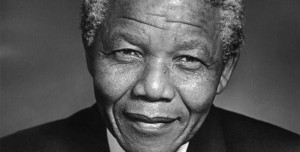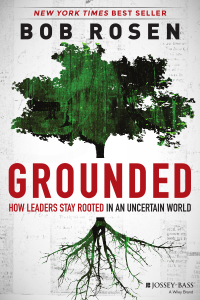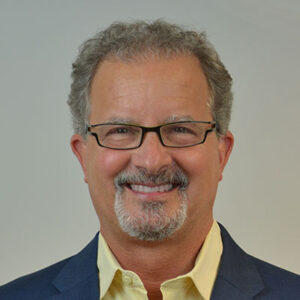 Most leaders are measured by what they do in the world – their accomplishments and achievements, and their successful campaigns and enterprises. Nelson Mandela will be remembered for something very different and much more fundamental. We will remember him for who he was as a human being. In the words of fellow Nobel Peace Prize laureate, Aung San Suu Kyi, Mandela helped us “change the world by changing attitudes, by changing perceptions. For this reason, I would like to pay him tribute as a great human being who raised the standard of humanity.” I couldn’t agree more.
Most leaders are measured by what they do in the world – their accomplishments and achievements, and their successful campaigns and enterprises. Nelson Mandela will be remembered for something very different and much more fundamental. We will remember him for who he was as a human being. In the words of fellow Nobel Peace Prize laureate, Aung San Suu Kyi, Mandela helped us “change the world by changing attitudes, by changing perceptions. For this reason, I would like to pay him tribute as a great human being who raised the standard of humanity.” I couldn’t agree more.
In the end, it was Mandela’s unique and unflagging character that defined him as a healthy and grounded leader – a leader whose influence spanned nearly eight decades, and who inspired the rich and poor, the black, white, and brown, CEOs and politicians, neighborhood kids, hardened capitalists and committed socialists. This broad appeal was based on Mandela’s essential goodness, and the lessons that goodness taught us.
In fact, Mandela may be the foremost exemplar of this paradigm in our lifetime. Rather than focusing on results, it starts with his six roots that form the foundation of healthy leadership, essential qualities that Mandela embodied.
Specifically, they include:
Physical Health – How you live
In spite of the harsh conditions he endured at Robben Island, Mandela lived a very long life, staying active and engaged throughout his life. He demonstrated remarkable physical resilience, as well as the ability to manage his energy. He clearly understood the importance of physical health and its connection to our overall well-being, once saying: “I have always believed that exercise is the key not only to physical health but to peace of mind.” Key lesson: Focus on managing your energy and peak performance throughout your life.
Emotional Health – How you feel
At the same time, Mandela understood the importance of emotional well-being. And his sheer positivity served as an inspiration. He once said, “I am fundamentally an optimist. Whether that comes from nature or nurture, I cannot say. Part of being optimistic is keeping one’s head pointed toward the sun, one’s feet moving forward. There were many dark moments when my faith in humanity was sorely tested, but I would not and could not give myself up to despair.” Key lesson: Search deeply for your self-awareness and embrace positive emotions.
Intellectual Health – How you think
Difficult as it was, Mandela’s time in prison provided an opportunity for him to grow intellectually and to cultivate his mind. In his autobiography, he writes that “prison itself is a tremendous education in the need for patience and perseverance. It is above all a test of one’s commitment.” He also used the “silence of solitude” inherent in prison life to “understand how precious words are” and their “impact on the way people live and die.” Mandela lived a life of deep curiosity and managed through the paradoxes of his challenges. Key lesson: Challenge your adaptive mind and learn something new every day.
Social Health – How you interact
As one of the most authentic public figures of our time, Mandela understood the importance of building mutually rewarding relationships and creating nourishing communities. These concepts, in fact, form the bulwark of his legacy, and provide the basis for his simple message of forgiveness: “If you want to make peace with your enemy, you have to work with your enemy. Then he becomes your partner.” He also appealed to the basic goodness of others in establishing positive relationships: “No one is born hating another person because of the color of his skin, or his background, or his religion. People must learn to hate, and if they can learn to hate, they can be taught to love, for love comes more naturally to the human heart than its opposite.” Key lesson: Discover your authenticity and give it away to others.
Vocational Health – How you perform
Driven by a meaningful calling, he mastered each stage of his life and extracted lessons along the way. Passionate and driven, he never gave up on his desire for freedom and peace in the world, refusing to step completely back from the challenge: “I have taken a moment here to rest, to steal a view of the glorious vista that surrounds me, to look back on the distance I have come. But I can rest only for a moment, for with freedom comes responsibilities, and I dare not linger, for my long walk is not yet ended.” Key lesson: Discover your true calling, master your work and drive to succeed.
Spiritual Health – How you see the world
Finally, it was Mandela’s belief in and commitment to a higher purpose, his ability to feel deeply connected to all the world’s citizens, and his generosity of spirit that so inspired us. “Our daily deeds as ordinary South Africans must produce an actual South African reality that will reinforce humanity’s belief in justice, strengthen its confidence in the nobility of the human soul and sustain all our hopes for a glorious life for all,” he said. Those are words for everyone to live by. Key lesson: Be grateful every day while deepening your connections in the world.





